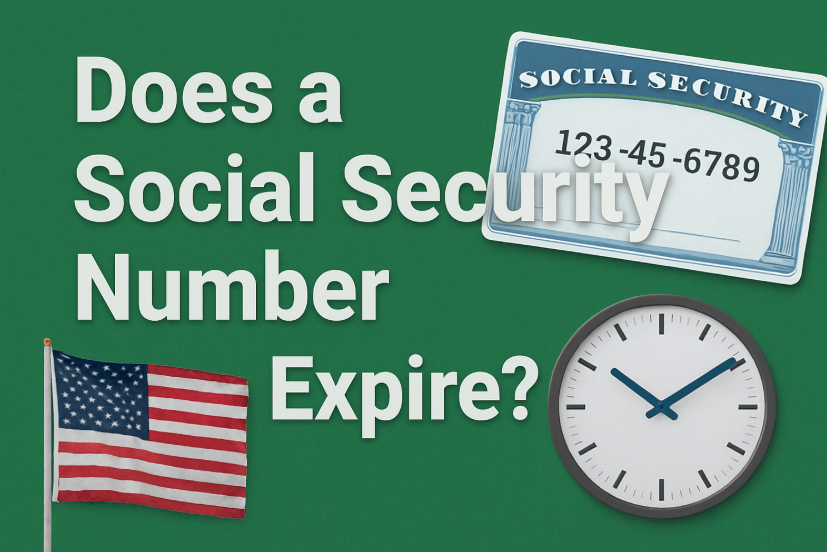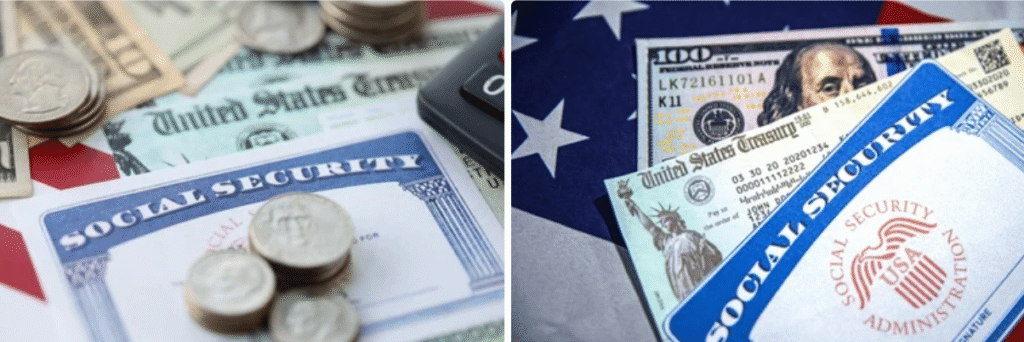Does a Social Security Number Expire? This guide clears up the confusion, explains how SSNs work, and whether they can ever be deactivated, replaced, or reused.
Your Social Security number (SSN) is one of the most important pieces of personal identification in the United States. It follows you from your first paycheck to retirement and even beyond. Because of how widely it’s used—in job applications, tax forms, benefit claims, and credit checks—people often wonder if this number has an expiration date or if it can become inactive.

In simple terms, Social Security numbers don’t expire. Once you’ve been assigned one by the Social Security Administration (SSA), it stays with you for life. However, there are cases where your ability to use the number might be limited, and understanding these situations can help you protect your identity and stay on top of your legal responsibilities.
What Does a Social Security Number Mean?
The SSN consists of nine digits that were given by the Social Security Administration. It was designed to monitor your income and the benefits you would get when in retirement or disability. In due time, it became a common denominator in the U.S. to cover a wide range of government, legal, and financial operations.
Your SSN is required nowadays to:
- Making federal and state income filings
- Acquiring employment in most professions
- getting Social Security, Medicare, or disability benefits
- Taking loans, mortgages, or a credit card (Applying)
- Opening of checking or savings accounts
- Enrolling in some insurance programs
People are concerned with the question of whether this number can expire or become unusable because it is so important.
Does a Social Security Number Expire?
The quick answer is no. Once an SSN is issued, it remains with you permanently. The SSA does not reassign numbers or delete them, even if they go unused for decades. The number stays tied to your identity.
You can leave the country, retire early, stop working for years, or change your citizenship status, but your SSN will always belong to you. It’s not like a license or ID card that needs renewal. It’s a one-time issue, and unless something drastic happens, like severe identity theft, you won’t need a new one.
Why the Confusion?
The confusion about Social Security numbers expiring often comes from situations involving people temporarily in the U.S. For instance, international students or temporary workers may get an SSN for work-related reasons. While their legal right to work may end when their visa does, their SSN itself doesn’t disappear.
In these cases, their ability to use the number for employment is what expires—not the SSN itself.
Can an SSN Be Suspended or Inactive?
While an SSN never technically expires, there are times when it may be flagged or restricted in use. This mainly happens for security or administrative reasons. Some examples include:
- Identity Theft Cases: If your SSN has been used fraudulently or compromised, the SSA may restrict its use or even issue you a new one in extreme cases.
- Death Reports: If someone is incorrectly reported as deceased, the number may be temporarily deactivated until the issue is resolved.
- Immigration Status Changes: For non-citizens, a valid SSN doesn’t grant permission to work forever. When the visa or work permit ends, the SSN is still valid—it just can’t be used legally for employment.
Even in these scenarios, the number isn’t erased or voided. It simply needs clarification, documentation, or reauthorization.

Do You Ever Need to Renew a Social Security Number?
No, there is no renewal process for SSNs. You don’t need to reapply like you do for a passport or driver’s license. Once you have your number, that’s the end of the administrative process unless something unusual happens, such as:
- Another person starts using your SSN
- Your records become mixed up with someone else’s
- You face harassment and need to change your details for safety
Even in these cases, the SSA rarely issues a new number. It’s usually resolved through additional security and corrections rather than assigning a different SSN.
Is it Possible to receive a New Social Security Number?
Not really, but in very special cases. The Social Security Administration can issue a demand for a new number in cases:
- This is an extreme form of identity theft, and the long-term results of the crime are suffered by you
- You are getting out of domestic violence or another threatening situation
- Religious beliefs can be a solid justification on your part
- Duplication of the numbers occurred, whereby two individuals were given the same number (and this is a rare mistake)
In such circumstances, the original number is removed from circulation, although it remains in the files of the SSA. Your records and old data remain associated with your new number in the company.
What Happens When Someone Dies?
When a person dies, their SSN is reported to the SSA, marking the number as belonging to a deceased individual. It will never be reused or reassigned.
Government agencies, banks, and other institutions use the SSA’s Death Master File to prevent fraud involving SSNs of deceased individuals. If a deceased person’s number is used, it usually triggers a fraud investigation or an immediate freeze on any transactions.
Does Moving Out of the Country Affect Your SSN?
No. If a U.S. citizen or someone with legal work authorization moves abroad, their SSN stays valid. It might not be used for a while, but it doesn’t expire or vanish. If that person returns to the U.S. years later, they’ll use the same number.
However, their access to benefits or work eligibility might be affected depending on how long they’ve been away and what their immigration status is. But the SSN itself remains on record.
What Should You Do in the Event You Lose or Theft of SSN Stolen?
In case you lose your Social Security card, believe that somebody is using your number incorrectly, do something immediately. The following is how to do so:

File a report of the theft with the Federal Trade Commission (FTC) via identitytheft.gov.
- Call SSA and check your account, and order a new card.
- Report to the IRS in case you suspect that your number is being used by a tax fraudster.
- Put an attack alert or credit lock with major credit bureaus to block unauthorized activity.
When the card is lost, it does not cancel the number. And in case your identity is stolen, you might be engaged in months or years of damage control work, so prevention work should be conducted quite early.
Donothing to protect your social security number.
You can only have a single SSN in this life, and therefore, you must maintain its safety. These are tips to follow:
- Then I never carry my Social Security card in my wallet when I do not have to
- Do not give out your SSN unless you are certain that you need it and it is safe
- Get rid of documents that have your SSN by tearing them into pieces
- Keep an eye on the credit report to see that nothing is odd
- Two-factor authentication for the financial accounts, where possible
You should take care of your SSN the way you take care of your passwords so that you will never be able to forget it.
Is it possible to check the validity of an SSN by Employers?
Yes. There are verification tools that are used by employers and government agencies; these tools include E-Verify or internal systems of the SSA to validate whether an SSN is valid and the name and the date of birth match with those on the record.
When a person gives an invalid SSN or a fake SSN during the application for any job or registration of any service to the government, it will be flagged easily. Calling with someone else’s number or any other number will be a fraud and may result in a criminal case.
Does a Social Security Number Expire and get reused?
No. Once issued, that nine-digit number belongs to one person only. The SSA does not recycle numbers, even after someone passes away. This is a key reason the number of available SSNs is large enough to avoid duplication for the foreseeable future.
If someone tries to use a deceased person’s SSN, it’s seen as fraud—even if it’s unintentional.
What If You Haven’t Used Your SSN in Years?
Maybe you left the country, haven’t worked, or simply haven’t had a reason to use your SSN lately. That’s perfectly fine. Your number is still active and linked to your record, even if you haven’t interacted with the SSA in a long time.
However, if you want to claim benefits or file taxes after a long break, you may need to provide updated documents to confirm your identity and revamp your profile in the system.
Final Thoughts – Does a Social Security Number Expire?
To sum it up, Social Security numbers don’t expire. Once you have one, it’s yours for life. It doesn’t matter if you stop working, move abroad, retire early, or take a break from using it—your number remains on file and linked to your name.
The only time you might need a new SSN is in rare cases of severe fraud or threats to your safety, and even then, the SSA takes a cautious approach. The best way to avoid issues is to guard your number carefully, monitor your credit, and report any suspicious activity as soon as you notice it.
Understanding how your SSN works and how to protect it can save you from future headaches and provide peace of mind for life.


